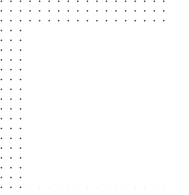
29 April 2019
MSRI Public Lecture, Bishkek: Household Food Security and Shock Responses in the Rural Southern Kyrgyz Highlands

University of Central Asia
138 Toktogul Street
2nd Floor Seminar Room
Bishkek, Kyrgyz Republic
Date
29 April 2019
Time
4:00-5:00 pm
Christian Kelly Scott
Fulbright Student Researcher
Mountain Societies Research Institute, University of Central Asia
PhD candidate, Department of Agricultural Economics, Sociology, and Education
Pennsylvania State University, USA
Abstract
Household food security has been measured using economic, experiential, and consumptive measures. In addition, there is a large scholastic body of literature that examines the effects of agricultural, economic, and environmental shocks on vulnerable communities. This lecture embarks on a targeted analysis of household food security and the implications of agricultural, economic, and environmental shocks on food security in rural Kyrgyzstan.
Drawing from survey data (n=1,234) from a representative sample of a southern county, a multivariate statistical analysis illuminates the complex, and at times enigmatic, dynamics of food security within varied financial and ecological Kyrgyz contexts. Initially, a comprehensive overview of the state of food security among participating communities was pursued. It was found that household diets are predominantly sufficient in terms of caloric content and affordability. And yet, many of these diets that are nutrient deficient, high in fatty oils, and not sufficiently diverse. Reasoned evidence is found to suggest complementary experiential and consumptive types of indicators in the Kyrgyz context. Agricultural, economic, and environmental shocks were found to be consistently significant in their relationship to household food security.
To interpret the impacts of shocks, it is put forward that 1) Household food insecurity coping strategies exhibit a high level of efficacy in addressing consumptive and economic stress; 2) The effect of shocks are experienced more profoundly among middle income households due to their livelihood strategies and asset-allocation; 3) Households that experience shocks are more susceptible to elevational, seasonal, and market volatility; 4) Familial, governmental, NGO, and humanitarian organizations are effective in reaching more vulnerable households following a major shock. Analysis suggests that financially vulnerable, asset-poor, and geographically isolated households disclose particularly high rates of choric food insecurity, with potentially dire consequences. This research presentation represents a critically important analysis of household food security in rural communities that are experiencing far-reaching transitions in the economic, environmental, political, and social arenas. The insights, discussion, and conclusions contribute to both our applied and theoretical understanding of food security in the Kyrgyz Republic, Central Asia, and the developing world.
Biography
Christian Kelly Scott, M.S. is a dual doctoral candidate in Rural Sociology and International Agriculture & Development in the Department of Agricultural Economics, Sociology, and Education at the Pennsylvania State University in the United States. Currently, he is a Fulbright Student Researcher in the Kyrgyz Republic conducting his dissertation research focusing on food security, migration, social life, and agropastoralism in the Southern Kyrgyz Highlands. His host institution for the Fulbright award is the Mountain Societies Research Institute at the University of Central Asia. His research focuses on societal issues of hunger and food security. Scott’s research interests include: international development, mixed methods, social network analysis, household food security measurement, international migration, and socially conscious applied research.
Language
The presentation will be conducted in English.
Registration
Please RSVP to elnura.omurbekova@ucentralasia.org with your name and affiliation.
Ideas presented in this lecture reflect the personal opinion of the speaker and do not necessarily represent the views of the University of Central Asia and/or its employees.


